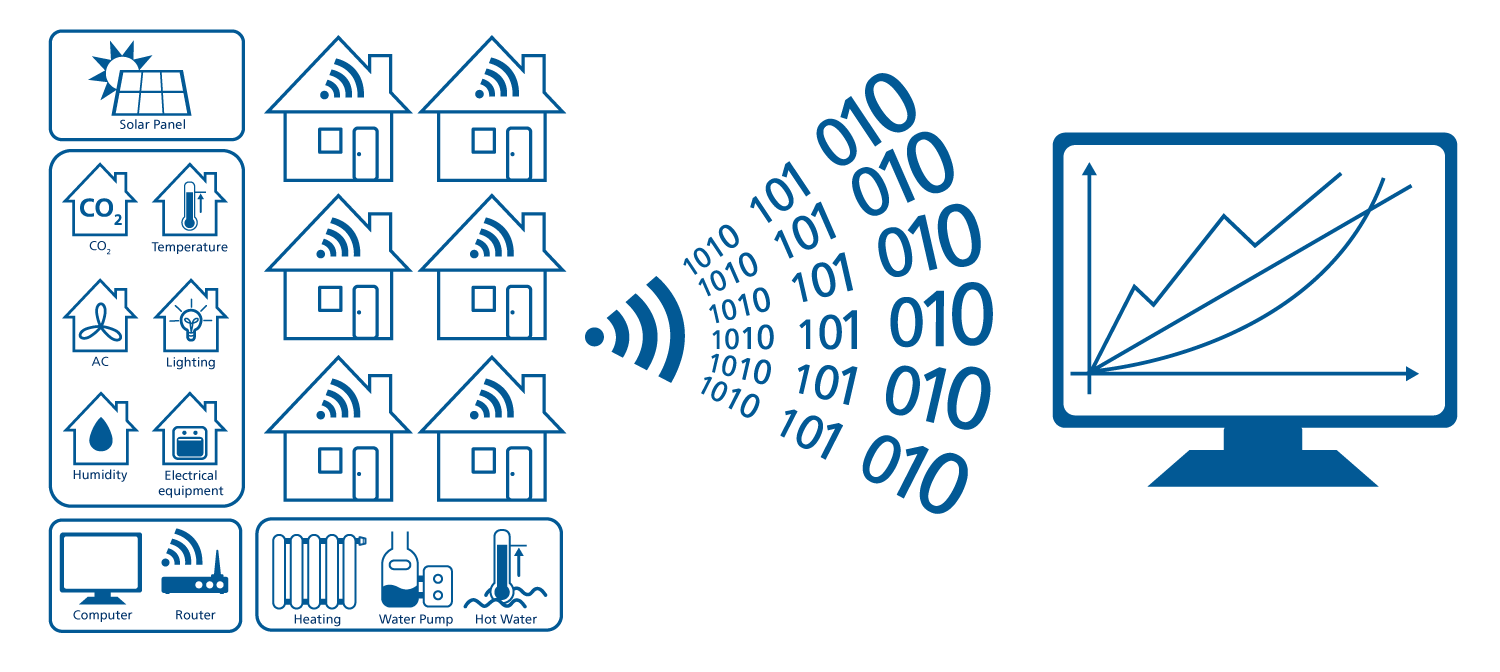Project Flex4Apps: Data analysis optimizes cyber-physical systems in telecommunications and building automation
Modern infrastructures for telecommunication or building automation are complex systems. They consist, for example, of software components, of electronic elements and of sensors, which often communicate with each other over the Internet. In such cyber-physical systems (CPS) large quantities of data are generated. The analysis of these data volumes – online and offline – represents a scientific challenge. In the »Flex4Apps« project, the aim is to use data analysis to better understand the processes inside CPS, to make the systems more error-tolerant and reliable and to provide new services
»The German contribution in the international consortium focuses on data analysis«, says Prof. Dr. Jochen Garcke, Head of Department »Numerical Data-Based Prediction« at the Fraunhofer Institute for Algorithms and Scientific Computing SCAI. Based on the data collected in the CPS, Garcke investigates connections between monitoring data sets and observable anomalies with the aim of identifying suitable parameters for the description of the system states of CPS. In addition, Garcke and his group develop and improve methods for accelerating data analysis.
The aim of »Flex4Apps« is to improve the utilization possibilities of CPS, taking into account the entire data processing chain through comprehensive solutions. The use of cloud resources and cross-domain data analysis tools will create a framework for system monitoring. This can be described as follows:
The individual components of a CPS log every detail of their state to the split second. The analysis of this wealth of data is, however, difficult to achieve by human beings, since there is a lack of preprocessing tools that divide the log files into critical and uncritical messages. An analysis is therefore often only carried out in the event of an error.
With »Flex4Apps« it becomes possible to discover the complete state of the system from the interrelations of the collected data and thus to be able to warn of an error and to detect defects that have not been observed so far due to missing error messages. The creation of domain-specific tools, which have to be adapted continuously to the changes of the system, is no longer necessary.
The interaction of these analysis and control tools is put to the proof using application examples from the practical experience of the project partners.
The Fraunhofer Institute SCAI is also involved in the project VAVID in the Big Data program sponsored by the German Federal Ministry of Education and Research (BMBF). In this project, data from the condition monitoring of wind energy installations are investigated. The practical experiences gained by SCAI and the project partners in industry and the research community are transferred into »Flex4Apps«. In particular, mathematical relationships between the analysis of time series data occuring during the condition monitoring of wind energy systems and the time-dependent data from building automation, which are subject of »Flex4Apps«, are to be investigated.
The following industrial partners are part of the German »Flex4Apps« consortium:
- NXP Semiconductors Germany GmbH, Hamburg,
- Nokia, Nuremberg,
- T-Systems Multimedia Solutions GmbH, Dresden,
- Provedo Automation GmbH, Leipzig,
- Genode Labs, Dresden,
- HiConnect GmbH, Mittweida, as well as the
- Fraunhofer Society for the Advancement of Applied Research, represented by the Fraunhofer Institute IIS, Division EAS in Dresden, and Fraunhofer Institute SCAI in Sankt Augustin.
The contact person for the project as a whole and contact person for Germany is Johannes Berg from NXP, Hamburg.
The German part of the project »Flex4Apps« is funded by the German Federal Ministry of Education and Research (BMBF) through the cluster ITEA 3 of the European research initiative EUREKA. The BMBF finances the project with a subsidy sum of 2.73 million euros.
